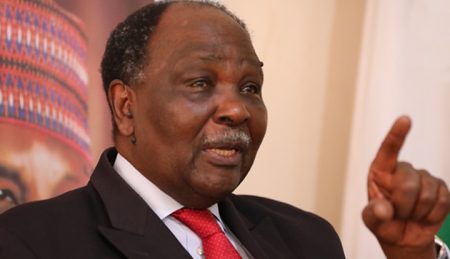The introduction of an 8% levy on fuel, ostensibly to address inefficiencies in Ghana’s energy sector, has sparked outrage and condemnation, particularly from the opposition. Kojo Oppong Nkrumah, a Member of Parliament and Ranking Member on the Economy and Development Committee, has characterized the levy as an act of “wickedness” and a “stab in the back” of the Ghanaian people. This strong condemnation stems from the government’s previous assurances that it would not resort to tariff increases to cover inefficiencies within the energy sector. The levy, therefore, is seen as a betrayal of public trust and a blatant disregard for the economic hardships faced by ordinary Ghanaians. The levy’s unprecedented high rate of 8% further exacerbates the public’s discontent, making it a significant point of contention in the ongoing political discourse.
Nkrumah’s criticism highlights the perceived hypocrisy of the government’s actions, contrasting its earlier promises with the current implementation of the levy. He questions the justification for such a high rate, particularly given its intended purpose of addressing inefficiencies, effectively burdening citizens with the cost of the energy sector’s shortcomings. This perceived injustice resonates with many Ghanaians already struggling with economic challenges, further fueling their resentment towards the new levy. The introduction of the levy has been met with widespread protests and calls for its immediate withdrawal.
The 8% levy, applied to every litre of fuel purchased, translates into a significant cost increase for consumers. The levy is not only seen as an additional financial burden but also as a regressive tax disproportionately affecting low-income earners who rely heavily on fuel for transportation and other essential activities. This regressive nature of the levy further amplifies concerns about its impact on the already vulnerable segments of the population. The timing of the levy’s introduction, amidst pre-existing economic hardships, has also drawn criticism, with many arguing that it demonstrates a lack of sensitivity to the plight of ordinary citizens.
The levy’s implementation has been temporarily postponed to allow for stakeholder engagement, a move seen by some as a response to the widespread public outcry and protests. However, critics argue that this delay is merely a tactical maneuver and does not address the fundamental issue of the levy’s exorbitant rate and perceived unfairness. The postponement, therefore, is viewed with skepticism, with many demanding a complete withdrawal of the levy rather than a mere delay in its implementation. The government’s handling of the situation has further eroded public trust, adding to the growing dissatisfaction with its economic policies.
The introduction of the 8% levy underscores the challenges facing Ghana’s energy sector and the government’s struggle to address these issues effectively. Critics argue that instead of imposing additional financial burdens on citizens, the government should focus on implementing comprehensive reforms to improve efficiency and address the root causes of the energy sector’s problems. The levy is seen as a short-sighted solution that fails to address the underlying issues and instead exacerbates the economic hardship faced by Ghanaians. The controversy surrounding the levy highlights the need for greater transparency and accountability in the government’s decision-making processes, particularly concerning policies that directly impact the livelihoods of ordinary citizens.
The 8% “dumsor levy,” as it has been dubbed, has become a symbol of the growing disconnect between the government and the people it governs. The levy has not only sparked widespread protests and condemnation but also raised fundamental questions about the government’s economic policies and its commitment to the welfare of its citizens. The controversy surrounding the levy serves as a stark reminder of the importance of public engagement and consultation in policy formulation and the need for government policies to be responsive to the needs and concerns of the people. The long-term implications of this levy and the government’s response to the public outcry remain to be seen, but it is clear that the issue has significantly impacted public trust and confidence in the government’s economic management.














